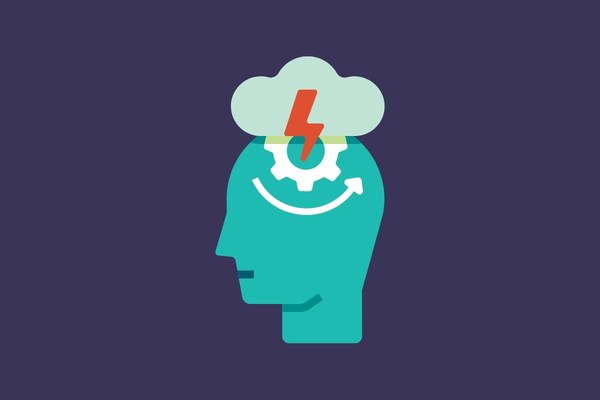Stress in the workplace is an all-too-common reality for employees and managers alike. While some stress is natural, ongoing or unmanaged stress can lead to high turnover, decreased productivity, strained relationships, and burnout. For HR professionals and managers in New Zealand and Australia, understanding the root causes of workplace stress and implementing effective stress management strategies is vital for maintaining a harmonious and productive work environment.
One tool that’s gaining traction in addressing workplace stress is the DISC profile. By offering actionable behavioural assessments, DISC provides insights into personal stress triggers and equips managers with strategies to support their teams. This blog explores how DISC assessments can be utilised to tackle workplace stress effectively, foster employee wellbeing, and improve productivity.
Understanding the Root Causes of Workplace Stress
Workplace stress can stem from various sources, including high workloads, tight deadlines, difficult colleagues, and lack of resources. For employees with different DISC profiles, these stressors may manifest differently. For example:
D Personality Type Causes of Stress
- Inability to achieve goals
- Losing the decision making power
- Losing power and authority
- Not being able to influence what happens
- Losing position
I Personality Type Causes of Stress
- Losing peoples’ attention
- Being neglected from events and activities
- Strict rules, inflexibility
- Silence
- Loss of influence or being side-lined
S Personality Type Causes of Stress
- Sudden changes
- Insecurity
- Unstable environment
- Possible future problems
- Injustice
- Unstructured situations
C Personality Type Causes of Stress
- Lack of information
- Lack of clarity about their role and position
- Chaos
- Not being able to control what one is supposed to control
- Having to show weakness in emotions
Managing Stress in the Workplace
Workplace stress arises from a variety of factors, including high workloads, ineffective communication, uncertain role expectations, and interpersonal conflicts. According to Safe Work Australia, workplace stress costs Australian businesses billions annually in lost productivity and compensation claims. To mitigate these losses and support employee wellbeing, HR professionals and managers must adopt targeted stress management strategies.
Techniques for Workplace Stress Management
- Identify Stressors Early: Proactively identify the sources of employee stress—whether individual or organisational—and address them swiftly.
- Promote Open Communication: Encourage employees to share their concerns without fear of judgment.
- Offer Clear Expectations: Clearly defined roles and responsibilities help prevent confusion and reduce stress.
- Foster a Healthy Work-Life Balance: Implementing flexible work hours or offering remote work options can reduce strain.
- Provide Stress Management Tools: Equip employees with resources like mindfulness programs or wellbeing workshops.
While these methods play an essential role, behavioural assessments like a DISC profile can add a layer of personalisation to stress management efforts, making interventions more precise and impactful.
Using DISC Profiles to Manage Workplace Stress
The DISC profile is a behavioural assessment that categorises individuals into four key behavioural styles—Dominance (D), Influence (I), Steadiness (S), and Conscientiousness (C). These styles provide insights into how people respond to challenges, interact with others, and handle stress.
By identifying an individual’s DISC profile, HR professionals and managers can gain an in-depth understanding of their behavioural tendencies, stress triggers, and coping mechanisms. This knowledge helps tailor stress management strategies to suit individual needs, fostering a healthy and productive work environment.
Understanding Behavioural Styles and Stress Triggers
Each DISC personality type has distinct stress triggers and behavioural tendencies under pressure. Here’s an overview of how DISC helps decode stress at work:
D-Style (Dominance)
- Stress Triggers: Lack of control, losing authority, and delayed results.
- Stress Behaviours: Becomes impatient, demands immediate action, and may appear blunt or aggressive.
- Management Tips: Provide opportunities to make decisions independently and maintain a fast-paced work environment.
I-Style (Influence)
- Stress Triggers: Lack of attention, rigid rules, and being excluded.
- Stress Behaviours: Seeks excessive validation, acts impulsively, and may over-communicate.
- Management Tips: Offer praise, create opportunities for social interaction, and avoid overly rigid policies.
S-Style (Steadiness)
- Stress Triggers: Sudden changes, uncertainty, and conflict.
- Stress Behaviours: Becomes overly cautious, resists change, and may withdraw.
- Management Tips: Create a stable environment, involve them in planning processes, and show genuine care.
C-Style (Compliance)
- Stress Triggers: Chaos, lack of clarity, and flawed processes.
- Stress Behaviours: Over-analyses problems, becomes overly rigid, and may disengage emotionally.
- Management Tips: Provide clear instructions, sufficient data, and autonomy to organise work systematically.
Tailored Stress Solutions for Employees
By using DISC profiles, managers can create targeted strategies to help employees manage stress.
There are specific things we can do based on our behavioural style to release some stress and pressure.
D Personality Type Stress Release
- Give opportunity to act independently
- Let them contribute
- Give responsibility
I Personality Type Stress Release
- Give the possibility to move, travel, meet people
- Do not force him to lose face
- Move closer to them
- Praise
- Provide encouragement
S Personality Type Stress Release
- Create a predictable environment
- Involve in planning
- Create a familiar, cosy and safe environment
- Talk and explain a lot
- Show that you care
C Personality Type Stress Release
- Give information
- Avoid public loss of face
- Make the instructions and rules as clear as possible
- Don’t push to decisions
- Provide information, feedback, clear instructions and roles
Benefits of Implementing DISC Stress Management Strategies
Integrating DISC-based stress management strategies into the workplace offers numerous advantages for both employees and organizations. Firstly, it promotes enhanced communication by encouraging managers to adapt their approach based on an employee’s behavioral preferences. This personalized communication fosters trust and reduces misunderstandings. Secondly, addressing stress triggers proactively helps to boost employee morale and engagement, leading to higher productivity and lower turnover rates. Finally, maintaining a supportive work environment tailored to individual needs encourages collaboration, innovation, and overall improved workplace satisfaction.
Improving Employee Productivity with DISC
Stress and productivity are closely linked. Prolonged stress leads to burnout, while effective stress management can boost employee performance. DISC assessments provide the framework needed to align workplace conditions with individual behavioural styles, ensuring that employees can perform at their best.
Here’s how DISC can boost productivity in your organisation:
- Enhanced Collaboration: Understanding behavioural styles improves team dynamics and reduces friction.
- Better Task Allocation: Assign tasks based on an employee’s natural strengths and coping abilities.
- Leadership Development: Managers can use DISC insights to build trust and motivate their teams more effectively.
- Early Intervention: Quickly identify when stress is beginning to impact an employee’s performance and act before burnout sets in.
Reducing Workplace Stress for HR Professionals
HR professionals are often tasked with creating a stress-free work environment while juggling multiple responsibilities themselves. Incorporating DISC assessments into employee development programs not only simplifies this process but also ensures lasting results.
When HR professionals are certified in DISC, they can:
- Customise Employee Training: Use DISC insights to craft workshops or seminars that address specific stress-related concerns.
- Foster Inclusivity: Ensure every behavioural style feels understood and supported, building a culture of trust.
- Strengthen Recruitment Strategies: Match candidates with roles that suit their behavioural tendencies, reducing stress from role misfit.
Take the First Step Towards a Stress-Free Workplace
The modern workplace is fast-paced and demanding, but stress doesn’t have to hinder productivity or employee wellbeing. Leveraging the power of DISC profiles offers HR professionals and managers a clear roadmap for addressing workplace stress and improving employee performance.
Become accredited in Extended DISC®
Gain a deeper understanding of behavioural styles and transform how your organisation handles stress management.




